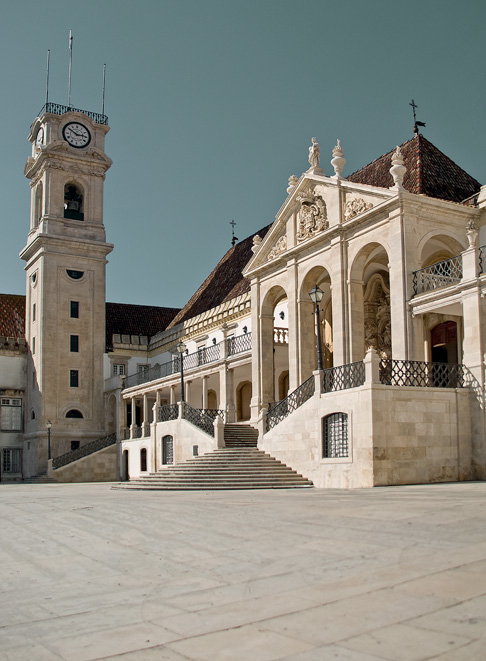FDUC at a glance

Legal studies have existed in Portugal since the foundation of the University during the reign of King Dinis. The precise date lies between 1288 and 1290. According to tradition (although this is controversial), the Studium Generale was established by a Royal Charter on the 1st March, 1290. In the eyes of the rest of Europe, however, the decisive moment is the 9th August, 1290, i.e. the date of Pope Nicholas IV’s bull that confirmed the Studium Generale.
In 1537, King John III, attempting to launch a reform worthy of the Renaissance, installed the University definitely at Coimbra.
The triumph of Liberalism brought a considerable reform to the legal courses, namely the foundation of the modern Faculty of Law, created from the fusion of the two traditional legal faculties of Laws and Canons, by the decree of the 5th December 1836.
In the mid-19th century, an Administrative Programme was created at the Coimbra Faculty of Law with the aim of providing the Portuguese Public Administration bodies with qualified personnel. Despite a benevolent welcome, the Programme went through serious difficulties and would eventually fade away after a few decades. Like a dormant, long cherished project, the Programme has been revived at the dawn of the 21st century with the creation of a more attractive version, called “Public and Private Administration Graduate Programme”.
At present, two different Graduate Programmes in that field are offered at the Coimbra Faculty of Law.
The purpose of combining teaching and research has yielded splendid fruits at the University of Coimbra Faculty of Law. The 1911 Reform aimed at transplanting the foreign model so as to create a counterpart body named ‘Instituto Jurídico’ (Legal Institute). The Coimbra Faculty of Law Legal Institute was reconstructed in January 2013 as a research and development unit, under the new Statutes of the Faculty. As a research center, the Legal Institute has received the classification Very Good from the Foundation for Science and Technology (FCT).
In 2007, the Coimbra Faculty of Law took on the Bologna reform. In compliance with legal requirements, not only the Graduate Programme in Law (Licenciatura) was reduced to four years but also each and every course had to be limited to one semester. Given the current internationalization of graduate studies in Law, we must stress the fact that a considerable number of foreign students from all over Europe, Asia, and Latin American and African Portuguese-speaking countries come to the Coimbra Faculty of Law.
The Coimbra Faculty of Law has always been actively involved in the legal and political life of the country. Over the last few decades, its faculty members have been critically instrumental in the construction of the statutory law corpus enacted by Portuguese State legislatures. Coimbra Law students, even though at times taking opposite sides, have often taken to the front line of the political, ideological and cultural movements that have shaped our country’s recent history.
In short, as a school, the Coimbra Faculty of Law has a unique, forward-looking history. This is a pluralistic house of culture and freedom where free citizens do research, teach and study, and where constitutionally guaranteed “freedom to learn and to teach” is respected and observed by all.





